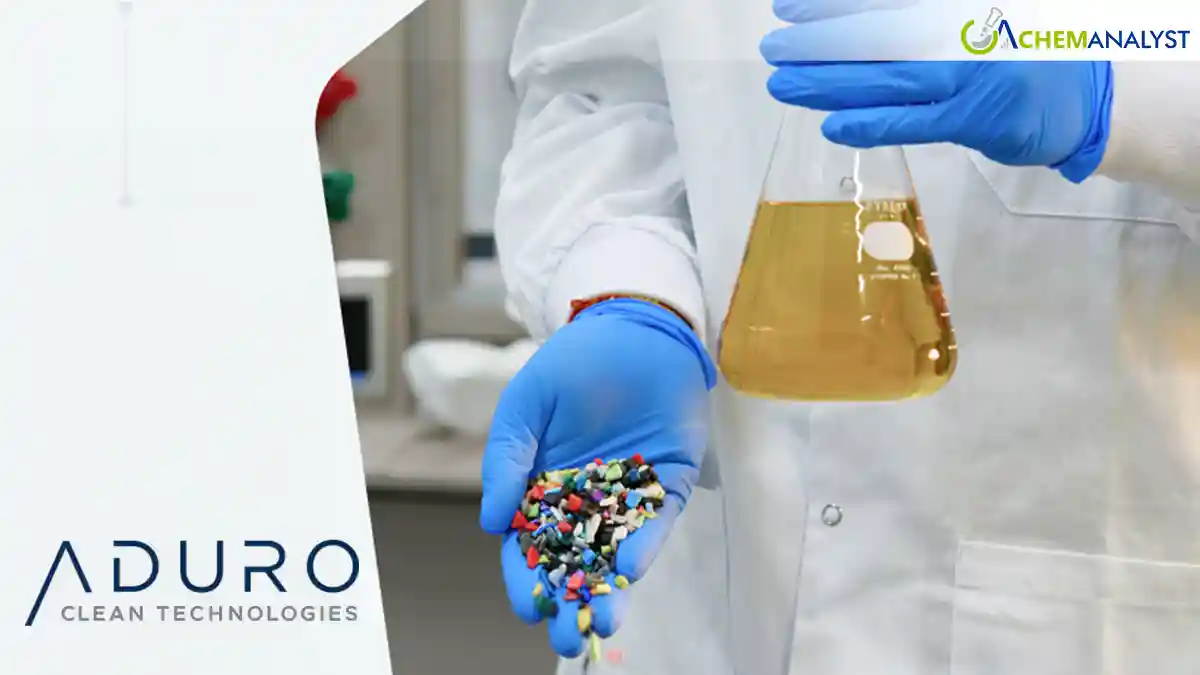Welcome To ChemAnalyst

Aduro’s pilot trials show its Hydrochemolytic™ oil can be steam-cracked without upgrading, enabling simpler, cost-effective integration of circular plastic feedstocks.
Aduro Clean Technologies Inc., a clean-technology innovator dedicated to converting low-value materials such as waste plastics, heavy crude, and renewable oils into high-value resources, has announced a major advancement in the validation of its Hydrochemolytic™ process. A leading global organization specializing in the design, licensing, and operation of large-scale petrochemical steam-cracking facilities has successfully completed pilot-scale steam-cracking trials using Aduro’s plastic-derived Hydrochemolytic™ oil. This achievement marks a significant step toward integrating chemically recycled feedstocks into mainstream petrochemical production.
Steam crackers are essential to the global plastics industry, as they produce fundamental building blocks like ethylene and propylene. Traditionally, these plants rely on oil- and gas-based feedstocks that meet strictly defined purity requirements. For circular plastics to become viable at scale, alternative feedstocks derived from waste plastics must match these demanding specifications. However, most chemical-recycling processes generate oils containing high levels of olefins, hetero-atoms, and impurities, requiring additional hydrotreatment or extensive pre-processing. This not only increases cost but also limits throughput, creates higher rejection rates of recyclable plastics, and expands the environmental footprint associated with producing circular feedstocks.
Aduro’s Hydrochemolytic™ Technology offers a contrasting pathway, producing liquid hydrocarbons with significantly higher saturation levels and far fewer impurities. Its product also has a notably lower boiling range compared to conventional chemical-recycling oils, making it more suitable for steam-cracking applications. The recently completed trials, performed in October 2025 at a recognized pilot-scale cracking facility in Europe, used Hydrochemolytic™ oil derived from a mixed waste-plastic stream that included polyethylene, polypropylene, polystyrene, PET, and polyamide. Importantly, the feedstock was processed exactly as produced—without dilution, hydrotreatment, or any additional upgrading.
The pilot trials demonstrated that the Aduro oil could be cracked under stable furnace conditions while delivering yields of ethylene and propylene comparable to those obtained from traditional fossil-based feedstocks. This outcome underscores the ability of Aduro’s process to generate a cracker-ready liquid without the complexity and cost typically associated with preparing recycled feedstocks. The results also indicate that steam-cracking operators may be able to integrate this material with minimal adjustments to existing infrastructure, simplifying the route from waste plastics to high-value circular olefins.
For operators within the olefins and petrochemical sector, these findings present meaningful commercial and environmental benefits. Producing a cleaner, more compatible, and more stable recycled oil enhances the economics of incorporating circular feedstocks into the value chain. It also supports broader industry goals related to decarbonization, resource circularity, and reduced reliance on virgin fossil inputs.
Aduro’s CEO, Ofer Vicus, emphasized the importance of the milestone, noting that the successful testing by a highly experienced global steam-cracking entity validates the strong potential of the company’s technology. He highlighted that achieving such performance without any feedstock post-treatment points to a future where HCT-derived oils can be seamlessly used in commercial furnaces with significantly reduced upgrading needs. Vicus added that this achievement strengthens the Company’s commercialization roadmap as it advances toward demonstration-scale operations.
This trial forms a key component of Aduro’s broader strategy focused on technology validation, industry partnerships, and market adoption. Building on these promising results, Aduro intends to expand collaborations with global players to further evaluate feedstock consistency, scalability, and integration pathways for its Hydrochemolytic™ Technology in circular plastics production.
We use cookies to deliver the best possible experience on our website. To learn more, visit our Privacy Policy. By continuing to use this site or by closing this box, you consent to our use of cookies. More info.
